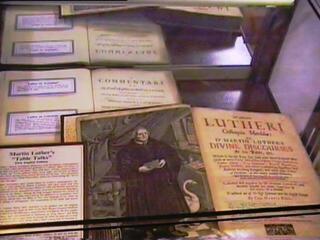PSALM SIXTY-NINE

69:16 Hear me, O LORD; for thy loving kindness is good: turn unto me according to the multitude of thy tender mercies.
Sweet and good is the mercy of God, namely, to those for whom their wretchedness is bitter and evil. But to those for whom their wretchedness is pleasing, the mercy of God is not good; indeed, it is useless, because they scorn it, and this is so because there is a relationship between the greatness and variety of the mercy of God and our wretchedness. For grace does not abound except where sin and wretchedness abound.
Peace and security do not let us see such things, let us labor and show what we ought to consider, that we may see many miseries, so that thus we may magnify and make propitious the mercy of the Lord. For it is not possible to make the mercy of God large and good, unless a person first makes his miseries large and evil or recognizes them to be such. To make God’s mercy great is not, as is commonly supposed, to think that God considers sins as small or that He does not punish them. Indeed, this especially means to reduce mercy. For how can one who regards evil as something small regard as something great the good by means of which the evil is removed? Hence our total concern must be to magnify and aggravate our sins and thus always to accuse them more and more, and earnestly judge and condemn them. The more deeply a person has condemned himself and magnified his sins, the more is he fit for the mercy and grace of God. –Martin Luther

0 Comments:
Post a Comment
<< Home